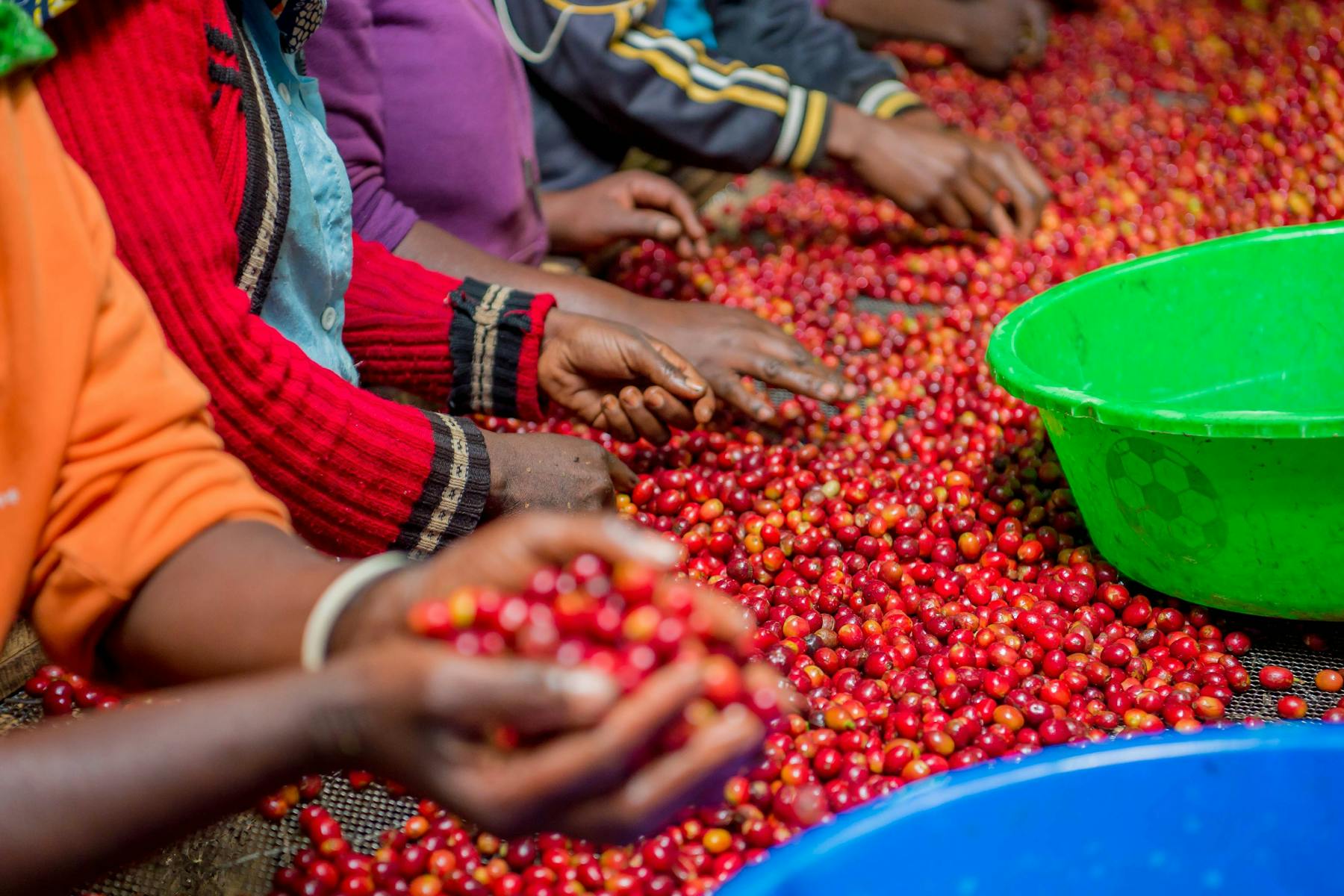The short answer is - yes, we pay beyond Fair Trade minimum prices and provide you more traceability and price transparency than Fair Trade certification regulates. The long answer follows, as conversations on "ethical sourcing" are complex:
In 2024, we paid 80% higher than Fair Trade minimum prices. We publish our prices in an annual transparency report available to industry and our customers. Our vision of responsible pricing and payments for coffee includes certifications, but is not limited to coffees that have them. Why? Because certified coffees can contribute to the development of a sustainable industry, but they are not the only, and not always the easiest or price accessible pathway for a farmer or farmer group to adopt, furthermore they do not guarantee transparency and a two way conversation between a farmer and a buyer like us.
First of all, what is Fair Trade? Fair Trade sets a minimum price ($1.80/lb FOB) to help protect farmers from earning low commodity market prices that are the dominant economic model in our industry. But this minimum price is just a floor—and often no longer covers the true cost of producing specialty coffee, which ranges from $1.30–$2/lb. Additionally, the minimum Fair Trade price is is paid to the exporter, and farmers may only receive 60–80% of it.
We establish minimum prices paid for coffee that target a higher price than the available cost of production for a producing region, and archetypical farm structure that we buy from. Ideally, we would have cost of production information for every farm, but unfortunately, access to cost of production information is extremely complex, and its why our industry has not used it as a benchmark for building ethical price benchmarks against. We believe paying above the cost of production is the only , and there is momentum amongst a small consortium of responsible coffee roasters and exporters who agree. We are aligning with them to establish new standards for the value of coffee, and to increase
Here are a few of these thought leaders on the ethical price for coffee that we collaborate with:
JNP Exporters and Importers - The exporters behind our Burundi coffees. Jeanine, the founder of JNP sits on the board of SCA, and is undergoing one of the worlds' first agile data approaches to calculating cost of production with 100 smallholder farmers.
Azahar coffee Exporters and Importers - We purchase coffees from Colombia through Azahar. They have conducted cost of production studies, and price their coffee to roasters based on a margin atop cost of production. We've never seen an importer apply this methodology, nor provide us with in house cost of production data and we are thrilled to buy their coffees and improve the transparency of the entire value chain economics for coffees we source from Colombia moving forward.
The Specialty Coffee Transaction Guide - Dispatch has been donating our pricing data for coffee contracts since 2018 to this research project out of Emory University, who publishes prices paid by importers and roasters for different quality tiers and volume tiers. This report annually acts as another benchmark to the commodity market pricing model, and Fair Trade certification models.


